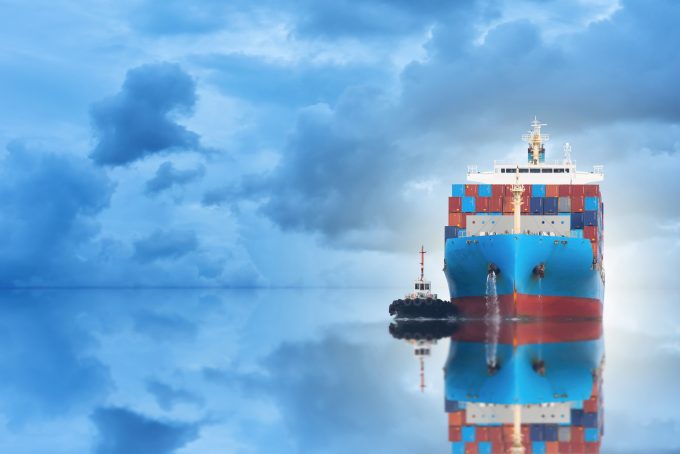US mega-airlines grow cargo volumes, but miss out on ecommerce boom
The three US mega-airlines – Delta, United and American – expanded their cargo traffic in ...
TFII: SOLID AS USUALMAERSK: WEAKENINGF: FALLING OFF A CLIFFAAPL: 'BOTTLENECK IN MAINLAND CHINA'AAPL: CHINA TRENDSDHL: GROWTH CAPEXR: ANOTHER SOLID DELIVERYMFT: HERE COMES THE FALLDSV: LOOK AT SCHENKER PERFORMANCEUPS: A WAVE OF DOWNGRADES DSV: BARGAIN BINKNX: EARNINGS OUTODFL: RISING AND FALLING AND THEN RISING
TFII: SOLID AS USUALMAERSK: WEAKENINGF: FALLING OFF A CLIFFAAPL: 'BOTTLENECK IN MAINLAND CHINA'AAPL: CHINA TRENDSDHL: GROWTH CAPEXR: ANOTHER SOLID DELIVERYMFT: HERE COMES THE FALLDSV: LOOK AT SCHENKER PERFORMANCEUPS: A WAVE OF DOWNGRADES DSV: BARGAIN BINKNX: EARNINGS OUTODFL: RISING AND FALLING AND THEN RISING

Non-operating containership owners (NOOs) are seeing significant reductions in daily hire rates and charter durations for new fixtures, amid concerns of defaults on existing deals.
“The past year marked the peak of the container market and the exceptionally strong market conditions we saw over the last two years,” said Danaos CEO John Coustas.
Dr Coustas was commenting during the Greek shipowner’s Q4 and full-year results presentation yesterday, which saw the NOO double its net earnings for 2022, compared with the previous year, to $711m, from a 44% increase in charter hire revenue of $993m.
“The decline in box rates to pre-pandemic levels across all routes, foreshadows difficult times ahead,” he warned.
He said Danaos was “closely following developments in the liner space” and believes the break-up of the 2M Alliance “will definitely be positive” for NOOs, “as there will be less efficiency in the networks”.
Danaos is the third-largest publicly traded NOO, by capacity, with a fleet of 68 vessels for 421,000 teu. It also has a newbuild order for six 7,000-8,000 teu ‘green methanol-ready’ ships, expected to be delivered between Q1 and Q3 next year.
Danaos has a revenue backlog of $2.1bn secured by charters for an average duration of 3.4 years with most of the top-10 ranked ocean carriers. And currently has coverage for 93% of its fleet under charter party this year, 63% for 2024 and 30% for 2025.
Notwithstanding the softening charter market, Dr Coustas said ocean carriers “were only just beginning to study” the IMO’s CII (carbon intensity indicator) regulations, which require older ships to reduce their service speeds to comply, and thus, in some cases, increase the number of vessels deployed on service loops.
Meanwhile, Nasdaq-listed Greek NOO Euroseas also published its 2022 results yesterday, its fleet of 17 vessels, ranging from 1,439 teu to 6,350 teu, earning revenue of $183m, up 95% on the previous year, for a net return of $95m.
Chairman and CEO Aristides Pittas said the charter market had “dropped by more than 80%” in the fourth quarter of last year, and added that in the early part of this year, “market rates gave up a bit more ground”, but had since stabilised.
He reported that the charterers of its 1997-built, 1,439 teu Aegean Express, Singapore-based Continental Shipping Line, had defaulted on its charter payments and Euroseas was pursuing legal action for the recovery of damages for the remaining two years of the time charter. In the interim, it had entered into negotiations to seek a replacement charter for the ship.
“All our other vessels are fixed with much bigger and stronger names, so I don’t really anticipate any issues with those,” said Mr Pittas.
Euroseas has nine newbuild feeder vessels on order, of which it already has charters agreed for two 2,800 teu vessels, due to be delivered in this quarter, at a rate of $48,000 a day for three years.
The remaining seven newbuilds are not expected to be delivered before December and Mr Pittas said although Euroseas was “not in any hurry to fix them at this point in time”, he added: “We are very confident we will be able to easily employ them at decent levels – of course, not as high as we fixed the first couple of vessels, but still at very profitable levels.”
To hear the latest on freight rates, check out this clip from The Loadstar Podcast of Peter Sand, chief analyst at Xeneta
Comment on this article